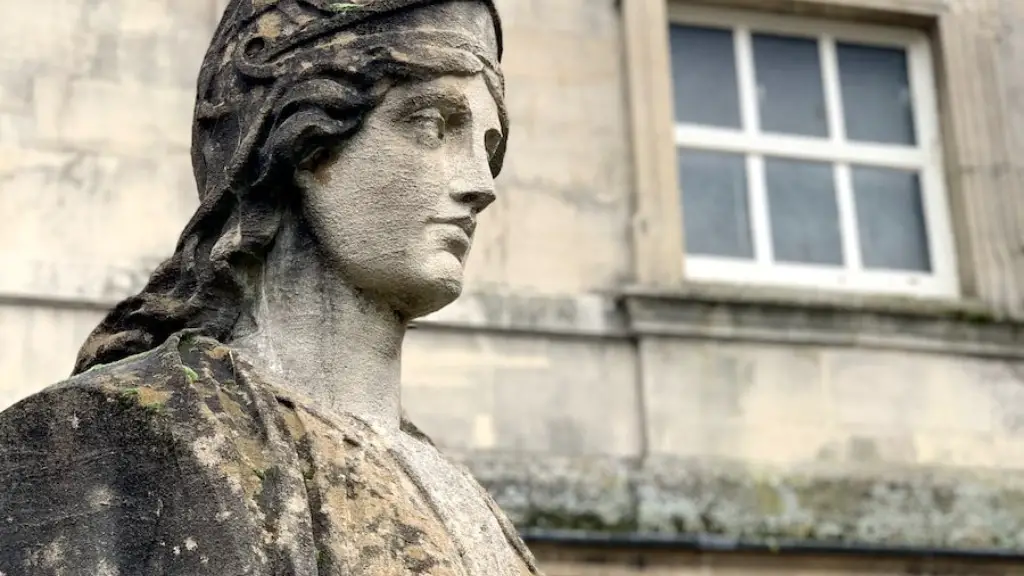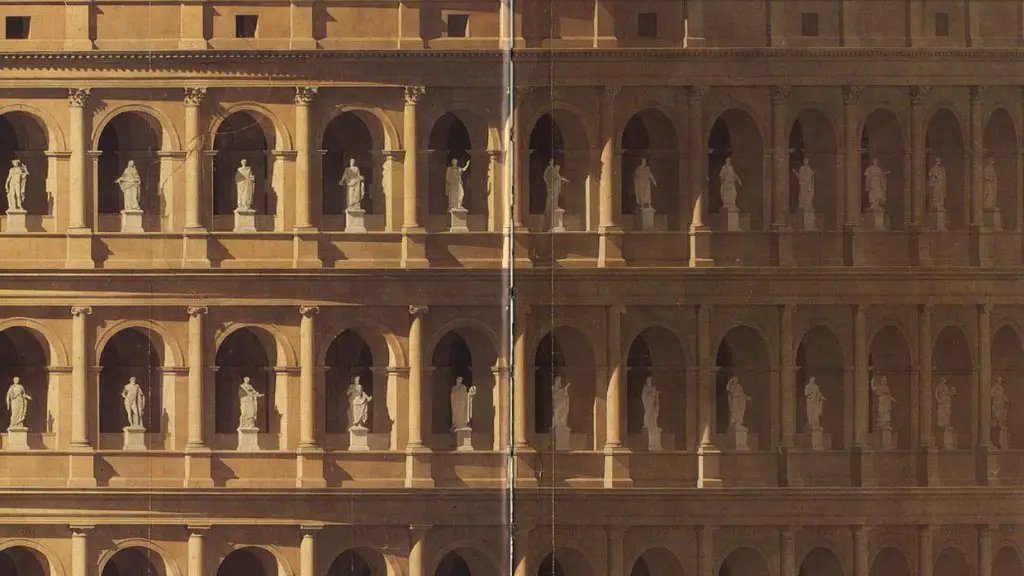Galen of Ancient Rome-An Overview
Galen was a famous physician, philosopher and influential figure in the era of Ancient Rome. His impact in the medical world is unmatched to this day, with many of his pioneering techniques still in use today. He was born in 129 AD at Pergamon, which was a Greek-speaking enclave located in what is now the country of Turkey. He was the youngest of three children and his father was a prominent architect. As a child of an upper- middle-class family, he was able to receive an exceptional education at a young age. He attended schools in nearby cities and notably studied medicine under the influential physician Esontius of Pergamon. By the age of 17, Galen was able to travel to Alexandria, then the center of medical knowledge in the world.
Galen used his scholarship to study medicine and to learn about the trades and politics of Ancient Rome. He moved to Rome in 161 AD where he served as a physician at the court of Emperor Marcus Aurelius, who was a Roman emperor from the Antonine dynasty. Galen’s presence in Rome heightened the scientific and medical knowledge of the time. His large body of work from Ancient Rome covered a range of topics from pharmacology to anatomy and physiology, occupying a large portion of early modern medical works. He proudly proclaimed himself to be “second only to the gods” for his achievements in the practice of medicine.
Galen was well-known in Rome for his medical skills and it is said that he was able to heal the wounded on the battlefield. He was also the first physician to incorporate physics and anatomy into the practice of medicine. He frequently experimented on animals to learn more about anatomy and physiology, though many of his insights were incorrect due to the lack of advanced technology of the era. He was able to identify certain illnesses and develop treatments for them.
Galen had a practical approach to medicine which would become known as the Galenic approach. It relied on the empirical gathering of anecdotal evidence, which could be logically extrapolated to patients. He believed in the Hippocratic notion of the four humors and the balancing of humors with drugs, therapies and a strict lifestyle. He was also among the first to recognize the importance of diet, hygiene and exercise in achieving good health. He scoffed at prayer as medicine and was known to be very critical of superstitious practices.
Galen was a controversial figure in Ancient Rome, often making enemies of the powerful. He used his influence to retaliate against those who criticized him, notably the notable medical favorite Herophilus. He was known to be quick-tempered and used a creative turn of phrase to insult his adversaries. His stature was misunderstood by many, leading to occasional outbursts and reprimands from the emperor. Despite these shortcomings, his contribution to the advancement of medicine was undeniable.
Galen’s works dominated the medical field for centuries and he achieved recognition from the Roman Empire with his appointment as the imperial physician. His works on anatomy, physiology and pharmacology were utilized in medical treatises for generations, though modern medicine has disproved many of his theories. Galen of Ancient Rome had a significant impact on the practice of medicine and is remembered as one of the most influential figures in Western medicine.
Galen’s Contributions to Medicine
Galen of Ancient Rome was one of the most important figures in antiquity. He was a medical pioneer and an influential figure in the medical practice of the day. During his lifetime, he made important contributions to the field of medicine including an emphasis on physiology, pharmacology, and improved anatomical knowledge. His pioneering methods are still in use today in the medical field.
Galen’s approach to medicine was based on empirical observation and rational reasoning, utilizing the Hippocratic four humors based theory. He proposed that certain illnesses could be attributed to an imbalance among the humors, or vital aspects of the body that affected health, and proposed treatments to restore balance. He also believed in the use of diet and exercise as a means of maintenance of health. This method of preventative healthcare is still in use today.
Galen’s anatomical knowledge was superior to many of his predecessors. He wrote extensively on anatomy and physiology, dissecting animals to better understand the concepts and making great strides in improving the accuracy of anatomical knowledge at the time. He was the first to identify many anatomical features, including the pancreas and the thoracic duct. He was also the first to identify diseases such as strabismus. His works on pharmacology improved treatments for many illnesses as well, utilizing herbs and other natural remedies.
Galen was also one of the first to practice surgery, which was frowned upon by many of his contemporaries. He was brave enough to perform surgeries on humans, though many of his surgeries ended in fatalities for the patient due to a lack of sterile technique or the correct instruments and knowledge. Nevertheless, his courage to attempt the surgeries in the face of disapproval is applauded to this day.
Though, many of his theories were disproved by modern medicine and he was not without his faults, Galen of Ancient Rome was an instrumental figure in the medical field. He influenced generations of physicians and made significant contributions to the development of medical practice as we know it today.
Galen’s Ideas and Approach to Medicine
Galen of Ancient Rome’s thoughts and ideas on medicine had a major impact on how it was practiced in antiquity. He conducted extensive research on pharmacology, physiology and anatomy, and wrote extensively on the topics. He developed an approach to medicine that attempted to bring a natural and holistic view to the treatment of illnesses, utilizing diet, exercise and lifestyle modifications.
The Galenic approach to medicine emphasized the importance of the four humors in illness and health. He proposed that certain diseases were caused by an imbalance among the four humors of the body, and proposed treatments to restore balance. He proscribed the use of herbs and other natural remedies to treat illnesses, soon followed by the use of drugs and medications. He was also an early adopter of the use of hygiene and preventative measures for health, though this view was not accepted by many of his contemporaries.
Galen’s approach to anatomy and physiology was based upon dissecting animals, and while he made many advances in the field his work was still limited by the technology of the era. He was able to identify many anatomical features that had previously been undiscovered and attribute diseases to certain organs of the body, though modern medicine has disproved many of his theories. Despite this, his work was highly valued and had a significant impact on the field of medicine.
Galen’s pronouncements and theories on medicine were well-respected and influential during the Roman Empire. He occupied a central role at the court of the emperor and wrote treatises which were spread far and wide throughout the medical community. He was able to influence the practice of medicine during this period and many of his methods are still in use today.
Galen’s Legacy
Galen of Ancient Rome left a lasting legacy on the field of medicine. His works were influential and advanced the medical knowledge of the time. He was able to make major strides in improving the accuracy of anatomical knowledge, popularize the Hippocratic notion of the four humors and promote an approach to medicine based upon empirical observation.
While many of his methods have been disproved by modern medicine, his contributions to the advancement of the field cannot be denied. His works had far-reaching influence and occupied a large portion of early modern medical works. His impact is unmatched to this day and his works have been widely spread.
Galen was a controversial figure in Ancient Rome due to his outspokenness and temperamental outbursts, though he was still respected as a pioneering figure in medicine. He was appointed as imperial physician and had a significant impact on the medical field. His influence has remained throughout the years and he is remembered as one of the most influential figures in Western medicine.
Influence on Modern Medicine
Galen of Ancient Rome’s influence on the medical practice of the present day is undeniable. His works still occupy a considerable portion of medical treatises and his methods are still in use today. His incorporation of physics and anatomy into the practice of medicine has been essential to the development of the field, and his promotion of hygiene, diet and exercise contributed to the advancement of preventative healthcare.
His works on anatomy, physiology and pharmacology were significant and his works remain influential. His pioneering techniques and methods have informed much of modern medicine, though his theories have been disproved by modern medicine. Nevertheless, his impact on the field has been lasting and his contributions are widely admired.
Galen’s legacy continues to this day in the form of improvements in the practice of medicine and further developments in the field. His ideas have been furthered by modern advancements, though his works are still widely read and discussed in medical circles. His influence in the field of medicine is undeniable and his status as one of the most influential figures in Western medicine remains.
Galen’s Impact on the History of Medicine
The impact of Galen of Ancient Rome on the medical field and its development is clear. He made major contributions to the advancement of the practice, influencing generations of physicians and advancing the understanding of anatomy, physiology and pharmacology. He wrote extensively on the topics and his influence on the medical field is unprecedented.
Galen’s works were widely spread throughout the Roman Empire and his influence changed the view of medicine. He was able to improve the accuracy of anatomical knowledge and attributed diseases to certain organs of the body, though modern medicine has disproved many of his theories. His methods have been adopted by physicians for generations, and much of his work still influences current medical thought.
Galen was also influential in improving the conditions of the medical profession. He strongly advocated for better frameworks for medical practice and proposed solutions to improve wages and working hours. His insistence that physicians have a reasonable level of autonomy and be paid for their services was revolutionary during the time and set precedents for the modern medical profession.
The impact of Galen of Ancient Rome on the medical field can not be understated. His influence and works have made a lasting impression on the field, improving the practice and inspiring generations of physicians. His contributions to the medical field are admirable and he remains one of the most influential figures in Western medicine.





